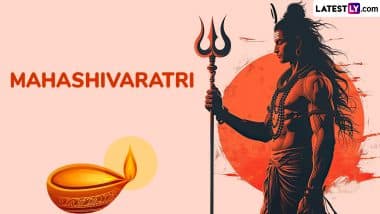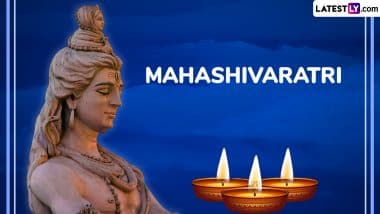Sikkim Day (also known as Sikkim Statehood Day or State Formation Day)is an annual celebration in the northeastern state of Sikkim that is marked on May 16. The day commemorates the formation of Sikkim as the 22nd state of India in 1975. The name Sikkim is believed to be a combination of the Limbu words "su" means ‘new’ and "khyim" ‘house’. As per historical records, the Lepchas are considered to be the earliest inhabitants of Sikkim. Buddhist saint Padmasambhava, also known as Guru Rinpoche, is said to have passed through the land in the 8th century. He is reported to have blessed the land, introduced Buddhism, and foretold the era of monarchy that would arrive in Sikkim centuries later. Indian States and Their Formation Dates: Maharashtra Din, Bihar Day, Karnataka Rajyotsava, Kerala Piravi & More – Marking Celebrations of Statehood Days.
Sikkim Statehood Day Date
Sikkim Day is observed on May 16 every year.
Sikkim Day History
In 1975, the Prime Minister of Sikkim Kazi Lhendup Dorjee, appealed to the Indian Prime Minister Indira Gandhi for Sikkim to become a state of India. In April 1975, the Indian Army took over the city of Gangtok and disarmed the Chogyal's palace guards. Thereafter, a referendum of questionable legitimacy was held in which 97.5% of voters supported abolishing the monarchy, effectively approving union with India. On May 16, 1975, Sikkim became the 22nd state of the Indian Union, and the monarchy was abolished.
To incorporate the new state, the Indian Parliament amended the Indian Constitution. First, the 35th Amendment laid down a set of conditions that made Sikkim an ‘Associate State’. A month later, the 36th Amendment repealed the 35th Amendment, and made Sikkim a full state, adding its name to the First Schedule of the Constitution.
Sikkim Statehood Day Significance
Sikkim Statehood Day is an important day for people of the Sikkim to reflect on the rich culture of the northeastern state. The day is celebrated annually with great fanfare and celebrations with various cultural events, parades, and ceremonies across the state. It is an occasion for people to celebrate the state's rich cultural heritage, unity in diversity, and achievements since becoming a part of India. On this day, Government offices, schools, and other institutions often organise special programs and activities to commemorate the occasion.
(The above story first appeared on LatestLY on May 16, 2024 07:18 AM IST. For more news and updates on politics, world, sports, entertainment and lifestyle, log on to our website latestly.com).













 Quickly
Quickly





















